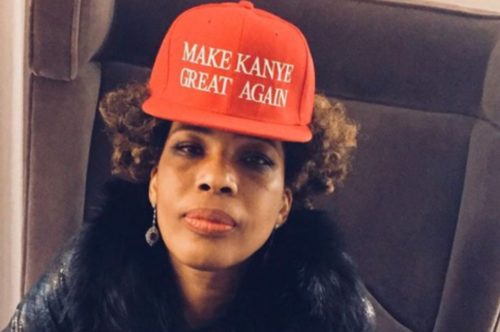The silent and sellout: What is the responsibility of prominent Black artists in an unjust society?
Share
Explore Our Galleries
Breaking News!
Today's news and culture by Black and other reporters in the Black and mainstream media.
Ways to Support ABHM?
By Brittany Kirkland, Black Youth Project
Back in the day, when someone labeled you a “sellout”, there was no mistaking it. You were being called out as a traitor, and it wasn’t something to be taken lightly.
What’s interesting is that as unambiguous as the term is, “sellout” is loaded for Black folk. It’s become heavily weighed down with a history entrenched in treason and disunion. Despite its intricate context, we’ve somehow still dimension-hopped our way right into this era where notable Black artists like Kanye are used to further other people’s agendas. They’re easily manipulated into using their powers for ulterior motives rather than good.
RELATED: Why We Must Expect More From Hip Hop Artists
Generally speaking, we all think of selling out as straight up turning your back on an entire community for new status level or some other bogus yet temporary compensation. This is what the term has matured into for Black people in America…
The consensus amongst Black folk is very clear. Selling your people down the river has been a huge no-no. From all the fellow Black brethren who answered the call of the FBI’s infamous COINTELPRO, to the Uncle Tom’s and Uncle Ruckus’s out there in the world, right on down to the artists who took an L for the culture so they could comfortably pad their pockets, it’s a no brainer that Black people have long despised the very concept of traitors and rightfully so…
No one convicts the sellout the way good ol’ hip hop does. Typically, when they get referenced in rap, we’re narrowing in on that eager artist who just wanted the shine more than they wanted to preserve the very art they originally came up in the game with.
And yeah, I get it, artists evolve musically. But there’s a difference between artistic evolution and completely forfeiting your integrity as an artist for some mainstream or audience exposure that’s essentially *cough* whiter…
Read the full article here
Read more about COINTELPRO here
Read more Breaking News here
View more galleries from the ABHM here












Comments Are Welcome
Note: We moderate submissions in order to create a space for meaningful dialogue, a space where museum visitors – adults and youth –– can exchange informed, thoughtful, and relevant comments that add value to our exhibits.
Racial slurs, personal attacks, obscenity, profanity, and SHOUTING do not meet the above standard. Such comments are posted in the exhibit Hateful Speech. Commercial promotions, impersonations, and incoherent comments likewise fail to meet our goals, so will not be posted. Submissions longer than 120 words will be shortened.
See our full Comments Policy here.